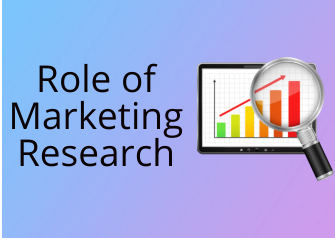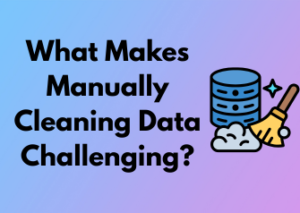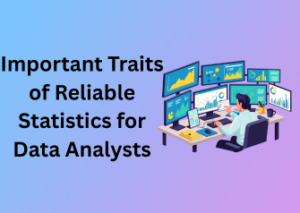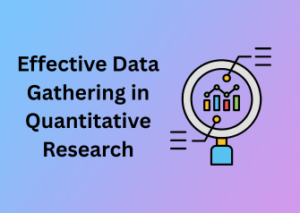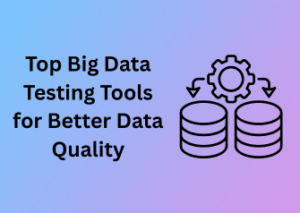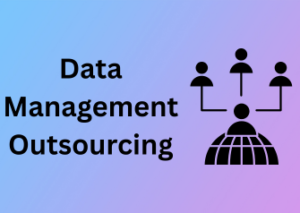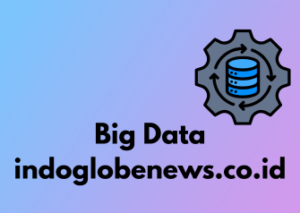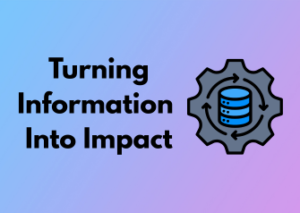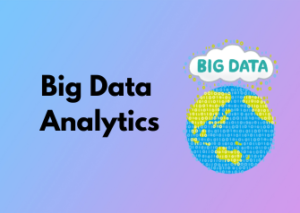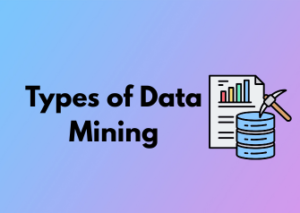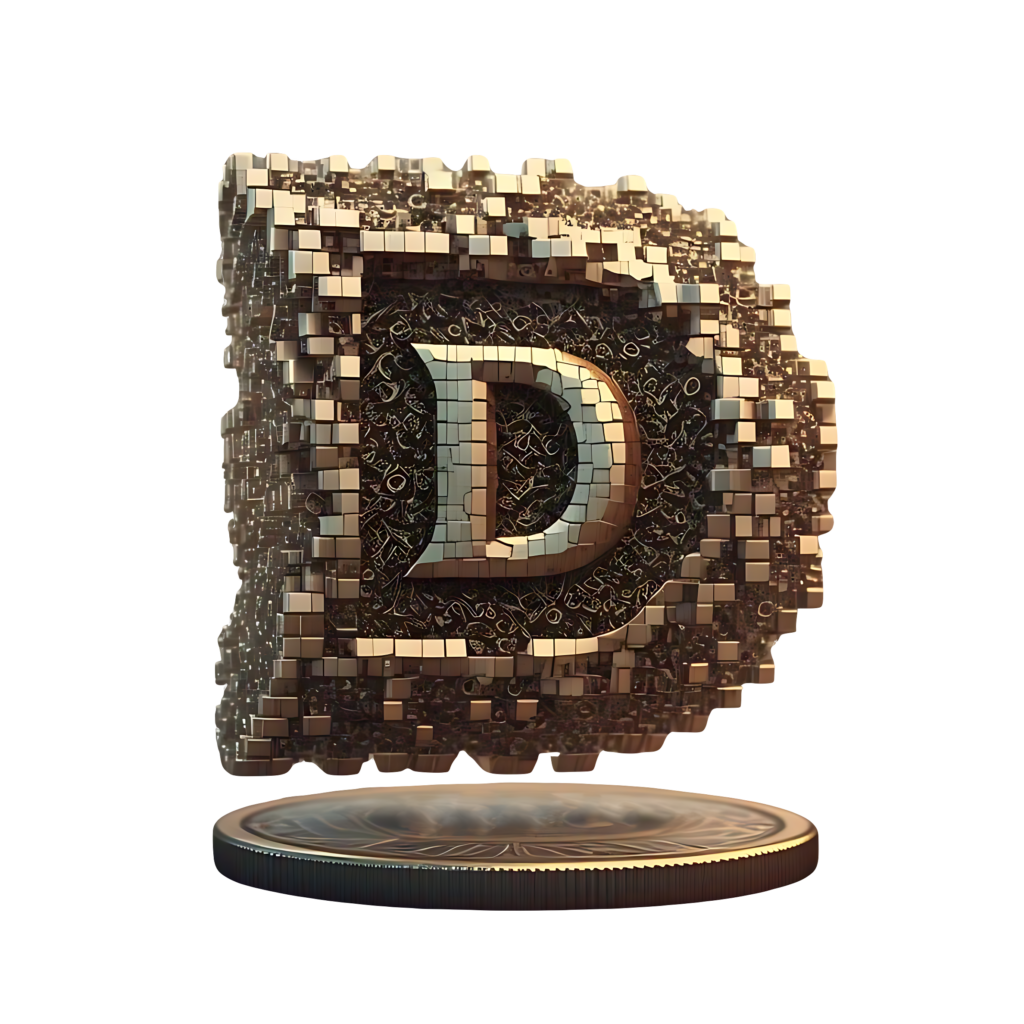What Do They Actually Do?
In simple terms, marketing research consultants help businesses make smarter, data-driven decisions. How? By diving deep into customer behavior, industry trends, and market opportunities. Think of them as the bridge between raw data and actionable strategies.
Here’s an example: Imagine you’re launching a new eco-friendly skincare brand. You think your target audience is environmentally conscious millennials, but is that really true? Enter the marketing research consultant. They’ll conduct surveys, analyze consumer behaviors, and study competitors to confirm (or challenge) your assumption. Based on their findings, you’ll know exactly how to position your brand for success.
Why Do They Matter So Much?
Today’s marketplaces are noisy, competitive, and constantly shifting. It’s not enough for businesses to take shots in the dark, guesswork just doesn’t cut it when the stakes are high. Marketing research consultants help minimize risks by providing clarity.
- They save money: Yes, hiring a consultant is an investment, but their insights can prevent costly missteps. Better to spend on understanding your audience upfront than on fixing a failed campaign later.
- They uncover opportunities: Sometimes businesses get so focused on their immediate goals that they miss new markets or untapped audiences. Research consultants zoom out to spot big-picture opportunities.
- They give your brand a competitive edge: In-depth data and insights are often what separate industry leaders from those just trying to keep up.
It’s More Than Just Numbers
Here’s a common misconception: People think marketing research is just about crunching numbers. While data is definitely a key part of their toolkit, consultants also bring human intuition and creative problem-solving to the table.
For instance, interpreting consumer surveys isn’t as simple as looking at pie charts. Sometimes, it’s about picking up on subtle patterns or cultural nuances. A great consultant will combine their deep understanding of people with analytical tools to deliver recommendations that resonate in the real world.
The Core Skills Every Marketing Research Consultant Should Have

Becoming a successful marketing research consultant is about more than just crunching numbers or writing detailed reports. At the heart of this role lies a blend of technical expertise, analytical prowess, and people skills. Whether you’re thinking about working with a marketing research consultant or aiming to become one yourself, let’s dive into the essential skills that really set great consultants apart. Trust us, knowing these will make all the difference!
1. Analytical Thinking: Making Sense of the Data Maze
Marketing research isn’t just about gathering data; it’s about interpreting it. Great consultants possess strong analytical thinking skills, taking raw data and uncovering patterns, trends, and actionable insights. Their ability to sift through spreadsheets and dashboards allows businesses to make informed, strategic decisions. If you’re working with a consultant, ask yourself: Can they simplify the complex and explain their findings in clear, actionable ways? If yes, you’re in good hands!
2. Communication Skills: Clear, Simple, and Impactful
What good is data if you can’t communicate its value? Marketing research consultants are masters at storytelling, presenting dry numbers as vibrant stories that resonate. Whether preparing a business presentation or brainstorming with a creative team, they tailor their delivery to suit various audiences.
A consultant with strong communication skills will avoid jargon and focus on delivering recommendations you can easily understand and act upon.
3. Industry Knowledge: Understanding the Bigger Picture
Imagine trusting someone for business advice, and they don’t even understand your industry. Yikes! A stellar consultant is well-versed in the larger ecosystem of marketing research, including market dynamics, audience behaviors, and competitive landscapes. They research your niche thoroughly and ensure that their solutions are tailored to fit your specific needs. Consider this skill a must-have for consultants you hire!
4. Adaptability: Rolling with the Changes
We live in a fast-paced world where markets change in the blink of an eye. Experienced marketing research consultants know how to adapt, whether it’s adopting new tools or adjusting strategies for unexpected shifts in the market. They don’t just stick to what worked five years ago; they thrive on staying ahead of trends and helping clients do the same.
5. Tech Savviness: Harnessing Data Like a Pro
Technology is a game-changer in marketing research. Tools like AI platforms, CRM software, and data visualization programs are essential for consultants today. An exceptional consultant not only knows how to use these tools but also understands which ones are best suited for your specific business goals. When hiring a consultant, don’t hesitate to ask what tech they rely on!
6. Problem-Solving Skills: Turning Challenges Into Opportunities
No marketing strategy is without hiccups. A great consultant excels in creative problem-solving, helping clients navigate roadblocks and tackle market challenges with confidence. Their ability to think outside the box often leads to innovative solutions that set brands apart from competitors.
7. Collaboration: Teamwork Makes the Dream Work
Finally, marketing research consultants are not lone wolves. They work closely with clients, marketing teams, product developers, and more. Their collaborative spirit ensures that everyone is on the same page and works cohesively toward the bigger business objective.
Modern Tools and Techniques Transforming the Field
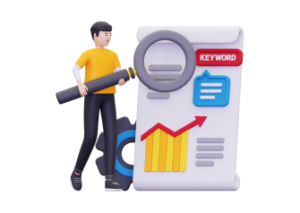
Marketing research consulting isn’t what it used to be, and honestly, that’s a great thing. Today, the field is no longer limited to focus groups and telephone surveys (remember those?). Instead, we’re seeing groundbreaking tools and techniques transforming how consultants uncover insights, solve problems, and drive strategy for businesses. Let’s dive into some of the standout methods modern consultants are using to achieve incredible results.
The Power of Data Analytics
Big data isn’t just a buzzword, it’s the cornerstone of modern marketing research. Powerful analytics platforms are enabling consultants to process and interpret huge datasets that, frankly, would have been overwhelming just a decade ago. Using tools like Google Analytics, Tableau, or Excel’s Power Query, consultants are able to:
- Pinpoint customer behavior patterns
- Identify trends and opportunities
- Forecast market shifts with precision
Gone are the days of educated guesses. Today, it’s all about data-backed decision-making.
AI and Machine Learning: The Game-Changers
Artificial intelligence (AI) and machine learning are taking marketing research to unprecedented levels. These technologies are amazing at crunching numbers, predicting outcomes, and even generating customer personas in record time. Tools like IBM Watson and Google Cloud AI allow consultants to automate repetitive tasks while delivering more accurate insights.
For instance, AI can comb through thousands of online reviews to identify recurring customer frustrations or highlight winning product features. Imagine how much time that frees up for consultants to focus on strategy!
Social Media Listening: Tapping into Real-Time Insights
Thanks to ever-evolving social media platforms, customer conversations are happening 24/7, and consultants are closely “listening.” Tools like Brandwatch, Hootsuite Insights, or Sprout Social scan online chatter to uncover:
- What people are saying about your brand (good or bad!)
- Trending hashtags and emerging topics
- Competitor analysis based on public sentiment
This technique provides fresh, real-time insight into how your audience genuinely feels—no coaxing or surveys required!
Heatmaps and User Experience (UX) Tools
If you’ve ever wondered how customers navigate your website, tools like Hotjar, Crazy Egg, or Microsoft Clarity have the answers. Heatmaps visually represent where users click, scroll, or hover, making it easier to optimize your website. Imagine knowing exactly what’s pulling attention and what’s being ignored—those insights can directly impact conversion rates.
The Role of Surveys and Polling Reinvented
Surveys are still around, but they’ve undergone a much-needed glow-up. Modern platforms like SurveyMonkey and Typeform are making surveys more interactive and user-friendly, which, surprise, means much higher response rates! Another twist? Pulse surveys—short, frequent surveys—are helping consultants keep up with shifting customer sentiments over time.
The Importance of Learning to Use These Tools
All of these tools are exciting, but there’s one caveat: they’re only as effective as the consultant using them. Knowing which techniques to deploy (and when) comes with experience, curiosity, and an ongoing commitment to professional development. A great marketing research consultant doesn’t just rely on the latest tech, they know how to interpret results and use them to craft real-world solutions.
If you’re looking to thrive in today’s fast-paced markets, leveraging these tools isn’t optional—it’s essential! And having a consultant who’s fluent in these modern techniques can make all the difference in staying ahead of the competition.
Key Industries Benefiting from Marketing Research Consultants
Marketing research consultants play a crucial role in helping businesses thrive in competitive markets. But have you ever wondered which industries gain the most from their expertise? Let’s dive into the key sectors that rely on these professionals to sharpen their strategies and stay ahead of the curve.
1. Consumer Goods and Retail
The consumer goods and retail industry is one of the biggest beneficiaries of marketing research consultants. With ever-changing customer preferences, seasonality, and intense competition, businesses in this sector need deep insights into consumer behavior. Research consultants help companies answer questions like:
- What are customers looking for in products and services?
- How do pricing and promotions impact buying decisions?
- What drives customer loyalty?
By leveraging focus groups, surveys, and analytical tools, consultants help consumer goods brands deliver the right product at the right time to the right audience.
2. Healthcare and Pharmaceuticals
In the healthcare and pharmaceutical sector, marketing research is critical, particularly for launching new medications or medical devices. Consultants here often face unique challenges like regulatory hurdles and ethical considerations. However, the rewards are immense:
- Understanding patient needs and concerns.
- Optimizing marketing strategies to reach healthcare providers.
- Evaluating the performance of drug campaigns post-launch.
With accurate market research, companies in this field can save lives while ensuring a solid return on investment.
3. Technology and Telecommunications
If there’s one industry where innovation never sleeps, it’s technology and telecommunications. Marketing research consultants help tech brands identify emerging trends and gain a competitive edge by answering:
- How do customers perceive my technology compared to competitors?
- Which features resonate most with users?
- What pricing strategy works best for new launches?
Consultants in this space often use advanced tools like sentiment analysis and user experience testing to guide companies toward smarter, customer-focused solutions.
4. Financial Services
From banks to fintech startups, financial services companies depend on customer trust and tailored offerings. Marketing research consultants assist with:
- Identifying pain points in the customer journey, such as during loan approvals or mobile banking transactions.
- Assessing demand for new financial products.
- Tracking how well advertising campaigns resonate with various demographics.
The result? Better financial products and services that truly meet customer needs.
5. Travel and Hospitality
The travel and hospitality industry thrives on understanding the desires of globetrotters and weekend travelers alike. Marketing consultants support businesses in:
- Unveiling trends in travel destinations and packages.
- Improving the customer experience at every touchpoint, from booking to check-in.
- Shaping personalized marketing campaigns based on traveler profiles.
In this highly personal industry, research drives the creation of unforgettable experiences that keep customers coming back.
Expert Advice: Why Industry-Specific Experience Matters
No two industries are exactly alike, which is why it’s vital to find a marketing research consultant familiar with your sector’s nuances. A retail consultant might excel at understanding customer buying habits, while a healthcare consultant will know how to navigate regulatory constraints and patient sensitivities.
Whether your business is in tech, travel, or beyond, the value of data-driven decisions cannot be overstated. With the expertise of a marketing research consultant, you’ll be well-equipped to turn insights into actionable strategies that drive success in your industry.
Debunking Myths About Marketing Research Consulting
When it comes to marketing research consulting, misconceptions can often cloud the true value of this vital industry. From assumptions about cost to misunderstanding the role consultants play, many myths can prevent businesses from realizing the full potential these experts bring to the table. Today, we’re diving into some common myths and setting the record straight—because marketing research consulting is more accessible, valuable, and dynamic than you might think.
It’s Only for Big Companies
Let’s get one thing straight—marketing research consulting isn’t reserved for Fortune 500 companies with seemingly endless resources. Whether you’re a scrappy startup navigating a new market or a local business looking to expand your customer base, marketing research is scalable and adaptable to your needs. Consultants can tailor their services to fit your budget and goals, offering insights that are actionable for businesses of all sizes. Think of it as your shortcut to understanding customers better, not a luxury for giants only!
It’s Just About Surveys and Focus Groups
While surveys and focus groups are popular tools, modern marketing research consulting goes far beyond these traditional methods. Many consultants leverage cutting-edge techniques like social listening, artificial intelligence, and predictive analytics to uncover trends and consumer behavior patterns. It’s not just asking people questions, it’s diving deep into data, analyzing consumer sentiment, and even anticipating future movements in your industry. Simply put, today’s consultants have a much more diverse toolbox than ever before.
Consultants Just Tell You What You Want to Hear
Have you ever heard someone say consultants only deliver information you already know? That’s far from the truth with marketing research consultants. Their primary value lies in offering objective, data-driven insights. They’re not here to confirm your assumptions, they’re here to challenge them, uncover blind spots, and deliver fresh perspectives backed by credible research. It’s their job to be honest and proactive, even if that means challenging conventional thinking within your team.
Marketing Research Consultants Are Too Expensive
This is one of the most common myths and also one of the easiest to debunk. Hiring a consultant doesn’t have to break the bank. Many firms and individual consultants offer flexible pricing structures, from project-based fees to retainer models. And when you consider the long-term impact of these insights, better-targeted campaigns, reduced marketing waste, and improved customer retention, it becomes clear that the investment pays off many times over. It’s not an expense, it’s a revenue-generating decision.
We Don’t Need a Consultant We Know Our Market
Knowing your market is a great start, but the marketing landscape is fast-paced and ever-changing. A marketing research consultant brings external expertise and a fresh perspective, identifying emerging trends and opportunities that might be invisible to those too close to the business. Consultants specialize in digging into the why behind customer behavior, providing data-backed strategies you can implement confidently. Even the most experienced businesses benefit from an outside expert’s laser-focused analysis.
Why Busting These Myths Matters
By believing these myths, businesses risk missing out on the incredible wealth of knowledge and direction marketing research consultants provide. Whether you’re exploring a new market, looking to optimize your marketing campaigns, or simply trying to stay ahead of competitors, working with a consultant can be a game-changer. So, rather than letting myths dictate your decisions, consider reaching out to a professional to explore how they can help your business grow.
- Takeaway: Marketing research consultants are adaptable, affordable, and deeply valuable to businesses of all sizes.
- Action Step: Think about where you could benefit from research insights, customer segmentation, product launches, brand perception, and assess whether working with a consultant might give you the edge you need.
In today’s competitive climate, businesses that make informed decisions win. Don’t let outdated myths hold you back, marketing research consultants can be the key to unlocking your next big success.
Finding the Right Consultant for Your Business Needs
When it comes to marketing research consulting, finding the perfect match can feel a bit like searching for the right pair of shoes, something that fits well, supports your goals, and helps you go the distance. But don’t worry! With some guidance, you’ll be well on your way to identifying the consultant that aligns perfectly with your business needs.
1. Understand What Your Business Needs
Before diving into the search, take a moment to clearly define what you need help with. Are you launching a new product and need consumer insights? Or trying to fine-tune your understanding of the competitive landscape? Understanding your challenges and objectives will not only help you articulate your goals better but also ensure you find someone who specializes in the right areas. Marketing research has many branches, so having clarity upfront will save a lot of time and effort!
2. Look for These Essential Qualities
A great marketing research consultant is more than just someone who knows how to crunch numbers. You’ll want someone who brings the full package to the table. Here’s a quick checklist of qualities to watch for:
- Industry Expertise: Do they have experience in your sector? Someone familiar with your specific market can save you from unnecessary explanation and dive straight into meaningful insight.
- Adaptability: Marketing trends and consumer behaviors shift rapidly. A strong consultant will quickly adapt to changes and pivot their strategies accordingly.
- Communication Skills: No matter how brilliant their data conclusions are, they need to be able to explain them to you in a simple, clear, and actionable way.
- Proven Track Record: Don’t just take their word for it. Look for testimonials, case studies, or concrete examples of their past successes.
3. Ask the Right Questions
Once you’ve narrowed down your list of candidates, set up interviews or exploratory calls to ensure they’re the right fit. Don’t hesitate to ask questions like:
- What is your experience with businesses in my industry?
- How do you typically approach solving marketing research challenges?
- Can you share case studies or examples of similar projects you’ve worked on?
- How do you communicate updates and key findings throughout the project?
Their answers should give you a good sense of how their style meshes with your business and how transparent they’ll be throughout the process.
4. Consider Budget and Value
It’s no secret that hiring a consultant involves an investment, but don’t just opt for the cheapest or most expensive option. Instead, focus on value and alignment with your goals. A slightly higher upfront cost might be worth it if the consultant will provide long-term, insightful, and actionable results.
5. Trust Your Instincts
Lastly, don’t underestimate the importance of the personal connection. As much as credentials and experience are important, you’ll want someone you feel comfortable working with. If there’s a natural rapport and a shared vision, it’s a good sign you’ve found the right person for the job!
What Lies Ahead: The Bright Future of Marketing Research Consulting
Hello there! If you’re curious about where marketing research consulting is headed, you’ve come to the right place. Let’s talk about the future trends that are shaping this dynamic and influential field. From cutting-edge technology to environmental considerations, the consulting game is evolving rapidly. So, get ready to dive into some insightful predictions and exciting possibilities!
The Impact of Emerging Technologies
One of the most exciting trends in marketing research consulting is the ever-expanding role of technology. Here are some key areas where innovation is leading the way:
- Artificial Intelligence (AI): AI is revolutionizing how consultants gather and analyze data. With machine learning algorithms, consultants can now process vast amounts of information quicker than ever before, identifying consumer patterns and trends with precision and accuracy. Think of it as turning a data jungle into a neatly paved highway!
- Big Data: Speaking of data, let’s talk about volume. Previously, the marketing world dealt with smaller datasets. Now, in the age of Big Data, consultants have access to a mind-blowing amount of consumer and market information that can drive more nuanced strategies. But of course, wrangling this data into actionable insights is where expert consultants truly shine!
- Predictive Analytics: Imagine having the ability to foresee market trends and make informed decisions before others can catch up. With predictive analytics, this crystal-ball-like capability is becoming a reality for consultants, helping companies stay ahead of the curve.
More Personalized and Human-Centric Approaches
While technology is a driving force, there’s a growing emphasis on making marketing research more human-centric and tailored, with a focus on understanding individuals rather than just groups.
- Hyper-Personalization: Businesses increasingly demand insights that connect with people on a deeply personal level. Consultants who can zoom in on individual preferences (thanks to the technological advancements mentioned above) will be at the forefront of the industry.
- Empathy-led Strategies: The marketing world is realizing that what consumers deeply crave is authentic communication. By honing in on emotional intelligence and creating campaigns that feel relatable, consultants can help brands foster meaningful relationships with their audiences.
The Role of Sustainability and Ethical Marketing
It’s not all about profits – consumers today are looking to align with brands that prioritize ethical practices and sustainability. And guess what? Marketing research consultants are the key to unlocking these insights for businesses. Here’s how this trend is expected to grow:
- Sustainability Metrics: Consultants will increasingly integrate eco-conscious insights, such as measuring carbon footprints or identifying eco-friendly suppliers, into their reports and strategies.
- Brand Transparency: Companies are under more scrutiny than ever to be transparent about their practices. Consultants who specialize in gathering and analyzing “social listening” data can help brands navigate this space and communicate authentically.
Globalization Without Losing Localization
In an interconnected world, the challenge for businesses is to expand globally while still staying relevant locally. Marketing research consultants will become even more valuable in helping brands strike that delicate balance. Expect more emphasis on:
- Localized Insights: Consultants will be digging even deeper into specific niches and communities, ensuring marketing messages respect local cultures while resonating globally.
- Cross-Cultural Competence: As businesses expand abroad, consultants who understand the subtleties of different cultures will be in higher demand.

